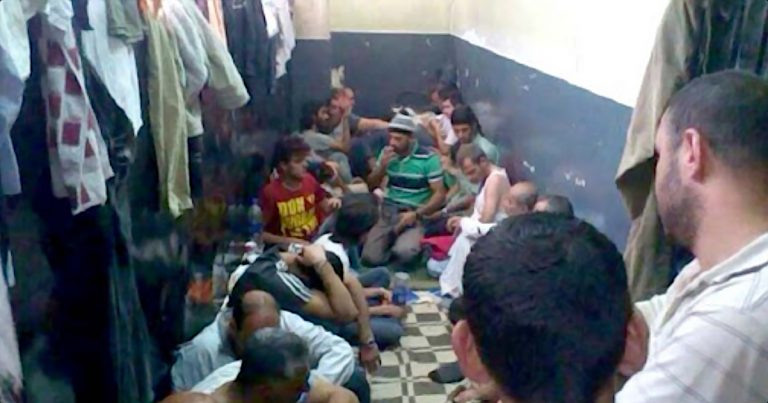
16 June, 2020
Egypt: Public Prosecutor and Minister of Interior must disclose names and numbers of Covid-19 cases in Egyptian detention facilities
This post was first published by the Cairo Institute for Human Rights
The undersigned rights organizations condemn the response of the Egyptian government towards the plight of detainees inside the country’s prisons and other detention facilities amid the outbreak of the Covid-19 pandemic. On May 9, the Ministry of Interior (MoI) suspended visitation in all prisons, and cut off all means of communication – including phone calls and letters – between detainees and their families, in violation of Egyptian law.
At the same time, the Public Prosecutor continuously renews pre-trial detention for many prisoners, especially prisoners of conscience, without a hearing and often in violation of the legally prescribed two-year limit for pretrial detention. Detainees thus become increasingly isolated, with their mental and physical health jeopardized amid inhumane and insanitary detention site conditions conducive to the proliferation of the virus.
In early June, a broadcast by the Ministry of Interior claimed that precautionary measures against Covid-19 were being implemented inside detention facilities; the video showed proper medical equipment inside the facilities. Yet in reality, medical equipment was neither present nor utilized to prevent the death of Shady Habash, as he suffered for hours throughout the night; nor was it present or utilized to prevent the death of Tamer el Shahhat. Both men suffered untimely deaths last month in Tora Prison, without receiving urgent medical care.
The insufficiency of the Ministry of Interior’s so-called precautionary measures becomes even more glaringly evidenced by its failure to announce any measures to protect detainees and employees who had been in contact with a civilian employee of Tora Prison who recently died of Covid-19. The absence of precautionary measures is the subject of a number of complaints and requests filed to the Public Prosecutor, including petition no. 22668, which urged the MoI to follow Ministry of Health protocol by testing detainees and employees who had been in contact with the now-deceased employee inside the prison. A request (no. 23762/2020) was also filed by the family of Ahmed Douma, held in Tora Prison, to allow a PCR test as well as other necessary testing, at the expense of the family. In the backdrop of a total media blackout on conditions inside detention facilities, there have been a reported ten confirmed Covid-19 cases and five deaths in detention facilities throughout Egypt.
Activist Alaa Abdel Fattah, held in pretrial detention in case 1356/ 2019, went on hunger strike for over a month to protest the renewal of his detention without a hearing, as well as the suspension of family visits and the refusal of prison authorities to allow disinfectants and other sanitary supplies into the prison. His family, as well as the family of former parliamentarian Zyad Elelaimy, are among a number of plaintiffs filing lawsuits to the Administrative Court demanding that detainees be allowed to communicate with their families, a right stipulated by Article no. 38 of 396 of the 1956 Prison Regulation Law. In this respect, the signatory organizations renew their demand to allow all prisoners communication with their families, in any way dictated by law, including through phone calls or letters.
The Public Prosecutor and Minister of Interior’s reckless inaction thus far can be remedied if the three demands endorsed by the undersigned organizations are implemented. First, the Public Prosecutor and the Minister of Interior must disclose the names, numbers, locations, and health conditions of the infected detainees and employees in prisons, police stations, and other detention facilities.
Second, the Minister of Interior must announce the measures undertaken to remedy the spread of Covid-19 in detention facilities. These measures should ensure the allocation of quarantine facilities as well as procedures for testing detainees who have potentially come in contact with Covid-19 infected persons.
Last but just as urgently, all detainees held in pretrial detention – especially the elderly, children, and those with chronic health conditions – must be immediately released, with the accused persons put on home confinement as stipulated by Article 201 of Criminal Procedures Code.
The above measures are vital to averting and mitigating the outbreak of Covid-19 both within and beyond Egypt’s prisons and detention facilities, and to preventing any avoidable loss of life resulting from it.
Signatory organizations
- Egyptian Front for Human Rights
- El Nadeem Center
- Arabic Network for Human Rights Information
- Cairo Institute for Human Rights Studies
- Association for Freedom of Thought and Expression
- Committee for Justice
- The Freedom Initiative
- Belady Center for Rights and Freedoms
Sign the petition:



